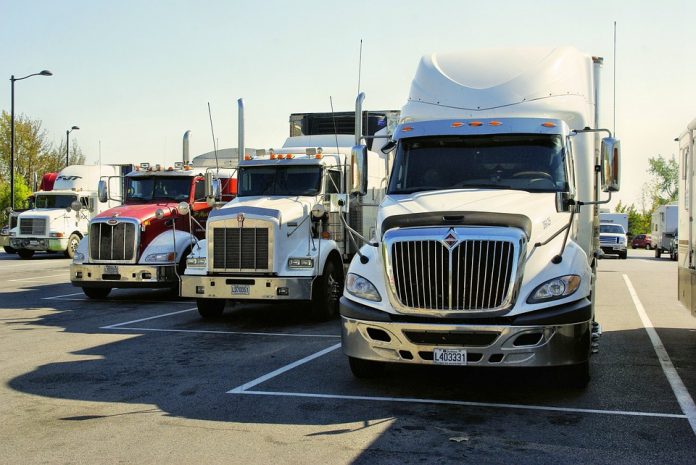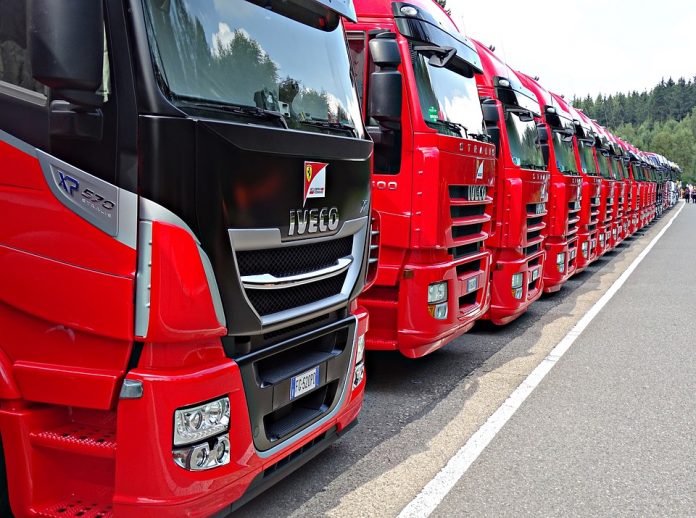When growing your own truck business, you must start with the very basics. That means establishing yourself as a manager first, and an entrepreneur second. Making your dreams become a reality is one thing, but knowing how to keep your business ideas operating for the long term is a whole different ball game.
That’s where efficient truck business management comes into play. You need to look at the bigger picture by examining the risks involved in your big plans and figure out solutions.
It might even be worth looking into automated fleet management solutions like ridecell.com which can streamline your truck business processes, ultimately reducing costs and optimizing the efficiency of your operations. Revolutionary mobility platform Ridecell can essentially help run your fleet business in a quicker and simpler fashion!
But what do you do if you’re not ready to make the digital switch over yet? It’s sometimes best to wait until things are officially up and running nicely before you rely heavily on technology anyway.
So let’s look at the very basics of what you need to know about starting a truck business…

Step 1: It All Starts With a Business Plan
Every great business starts with a great business plan. Your truck business should come to fruition through a well-organized and well-thought-out plan that has clear goals. There needs to be value in the ideas that you have and you also need to identify the obstacles you’ll encounter. Know how to tackle the obstacles as you come to them!
Step 2: Think About Your Costs
You need to be able to afford the plan you’ve come up with. Calculate your fixed expenses and estimated revenue, and make sure you’ve included your operating costs somewhere in there too. For example, you need to know exactly how much each truck will cost you to run every day, week, month, and year, including the cost of fuel, taxes, permits, and insurance, etc.
At this stage, it’s probably worth contacting a financial advisor to be certain that you’ve thought about every single little detail. A professional with specialist knowledge of the transportation industry will help you leave no stone left unturned.
Step 3: Find Your Niche
Finding your niche is important for every business owner, including a trucking business entrepreneur that needs to know the market inside out. Figure out the purpose of your fleet and research until your fingers hurt. It’s vital you’re aware of who your competitors are and what services are already out there in order to work out how much you’ll charge, what equipment you need, and what will make you stand out.

Step 4: Make Sure It’s Legal
It goes without saying that your truck business needs to operate legally. This includes complying with all government regulations and ensuring all safety rules are obeyed. You need to have all the necessary licenses and permits required to operate your plans and there’s no leeway with this either. It’s your sole responsibility to make everything legal before any handshakes are made and any real business starts.
Step 5: Protect Your Business
Protecting your business with the best insurance is also vital. You don’t want your hard work to all be for nothing if something does go badly wrong. Don’t be put off by the fact that trucking insurance is particularly expensive either. The cost of any damage will be a lot higher than the coverage payout. Simply do not take the risk. Find the best premium with the best policy that’s specific to your requirements.
Step 6: Find the Right Vehicles
One of the most important aspects of starting any transportation business is, of course, finding the right vehicles. And with starting a trucking business, you have numerous options to choose from.
Firstly, you should decide whether you want to purchase or lease your trucks. This decision all depends on what type of vehicle it will be and what equipment is needed. For example, do you need refrigerated vans? Do you need a truck with sleeper cabins? Do some research and take the time to network and weigh up your options.

Step 7: Choose The Right Fuel
Every existing owner of a truck business will tell you that fuel is the biggest expense. So before you make your final purchase decision, you should consider what type of fuel strategy will be best for your plans.
It’s not just about finding the cheapest PUMP price either. What you need to do is find the cheapest BASE price, otherwise, you will be paying a lot more on fuel tax than you need to be. So always think twice about where your fleet will be filling up before making any long-haul journeys, especially if it’s over borders where taxes and base/pump prices will differ.
Step 8: Hire (and Retain) Your Drivers
Seeking and hiring drivers will probably be the biggest challenge you’ll face. Why? Well, the truck driver turnover rate is one of the highest in America. This means you might find yourself a solid workforce, but then you’ve got to strive to keep them on board for the long run.
In order to maximize the chances of retaining your workforce, your recruitment process needs to be water-tight. Focus on hiring the drivers who are most happy in their job role, and also think about implementing a money-based reward system that offers worthwhile incentives for staying with you.
Step 9: Polish Up Your Managerial Skills
Once you’ve found a solid workforce, next you need to know how to manage them. This includes brushing up on your interpersonal skills and making sure you know how to keep the behind-the-scenes office ticking along smoothly. This particular step is all about finding what personally works best for you AND your team.

Step 10: Grow Your Client Base
Last but certainly not least, you need to do everything in your power to grow your client base. The more steady long-term clients you have, the more secure your income is. You never really want a client that accounts for 20% or more of your overall profit.
So, how do you grow your client base? With successful marketing of course! Build a professional website that looks, feels, and functions well. And also consider growing a social media presence too. Establish yourself as an impressively trustworthy player in your local industry!









